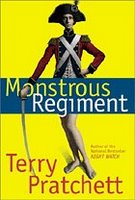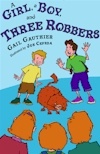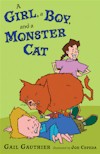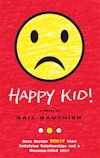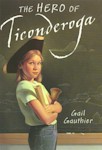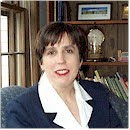Island Of The Blue Dolphins Meets The Admirable Crichton

Nation by Terry Pratchett is set in an alternative nineteenth century world where an enormous wave washes away all the residents of an island except for a young boy, Mau, who had been about to pass his manhood ritual. He is now alone. Until, that is, he finds Ermintrude (who, quite understandably, decides to rename herself Daphne). She is a young member of the British royal family who is washed onto Mau's island home, the only survivor of a ship that was destroyed by that same wave. Daphne brings with her orderly so-called civilization. She is well-mannered and ladylike, as one would expect from someone of her station, but she also has a trained, scientific mind. She is familiar with both Darwin and Agassiz.
Mau's tremendous loss triggers a crisis of faith. You could say that Daphne helps him find another belief system.
This is a novel about the place of religious belief, something I don't think I've seen a lot of in YA fiction. (That might be what His Dark Materials is about, but I couldn't understand the second two books in the trilogy.) Occasionally Mau's spiritual quest got a little deep for me, too, but the humor and terrific characters got me past those points.
For a while I was concerned that this was going to be a rant against evil Europeans destroying other societies. Not that there isn't plenty of historic precedent for that, but it is a subject that has been done before. Pratchett, however, goes in another direction.
Nation is one of this year's Printz Honor Books
Today's Training Report: I fell behind on the 365 Story Project so I could immerse myself in the never-ending story. So today I tried to bring myself back up to speed with that by trying to track a character I want to do something with soon. I also made a hard copy of the draft I finished yesterday. I always edit a hard copy. I'll leave that for next week because drafts should sit like stews and sauces.
Labels: Reader response, Terry Pratchett, YA
